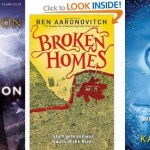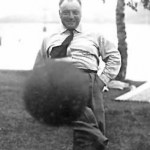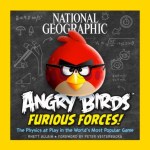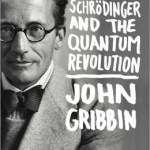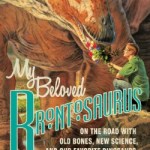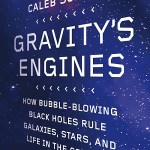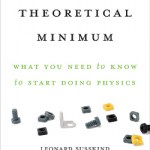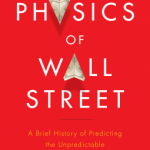Books
I've gotten out of the habit of blogging about the books I read for fun here, mostly because I've gotten out of the habit of reading for fun. Not for lack of desire, but because between my job and the kids and the massive amounts of research reading for the book-in-progress, I haven't had time.
Of course, I make the occasional exception, and when one of my very favorite SF authors comes out with a new one, that's a great reason to read a little fiction. Robert Charles Wilson isn't the most prolific author, but he's consistently excellent, and always thought-provoking, so I was very happy to…
I sent off the complete draft of the book-in-progress yesterday, somewhere between 12 and 36 hours ahead of my contractual deadline. Which I suppose makes it a book-in-process now, maybe. That process may still include re-writes, though, so my work probably isn't done yet.
The final draft, according to Word anyway, comes to 253 pages (space-and-a-half) and 96,807 words. I don't remember the word count from the original contract, but this is more than that. Which is pretty typical of my writing, really.
Because I wrote it down as part of the final checks, here's the approximate table of…
I'm doing a bit of work on an idea for physics outreach, which would involve tying a discussion of modern physics to science fiction stories. I have Opinions about this sort of thing, of course, but I also have readers who might think of things I don't. So, let me throw this out to you all:
What is your favorite example of a science fiction story (here meaning print, movie, or television) making use of ideas from quantum physics? What's your least favorite?
My favorite stories invoking QM ideas are probably Robert Charles Wilson's brilliant "Divided by Infinity" (which I will draw heavily on…
I'm sure I've done more than enough wibbling about TED for this week, but the only major physics story at the moment involved the Higgs boson, and I'm thoroughly sick of that. So let's talk about Malcolm Gladwell and journosplaining.
Gladwell has a new book out, David and Goliath that from all reports is pretty much exactly what you expect from a Malcolm Gladwell book. I greatly enjoyed the digested read by John Crace in the Guardian. Among the many bad reviews of this were a trio by my colleague at Union, Christopher Chabris-- first a paywalled review in the Wall Street Journal, then a post…
The stupid Steven Pinker business from a few weeks ago turned out to do one good thing after all. It led to this post at Making Science Public, which quoted some books by Jacob Bronowski that sounded relevant to my interests. And, indeed, on checking The Common Sense of Science out of the college library, I opened it up to find him making one of the arguments of my book for me:
Many people persuade themselves that they cannot understand mechanical things, or that they have no head for figures. these convictions make them feel enclused and safe, and of course save them a great deal of trouble…
I started out blogging about books, way back in 2001, but somewhat ironically, I rarely post anything about books any more. My free time has been whittled down to the point where book blogging is time taken away from other stuff, and it's never been that popular here. I post reviews of science books that publishers send me, but fiction has mostly fallen by the wayside. As has fiction reading, to a large extent.
I did have a run recently of books with some elements that resonated with my own book-in-progress about scientific thinking, so I figure that's a good excuse to bring them in. The…
I've got a ton of stuff that needs to get done this week, but I don't want the blog to be completely devoid of new content, so here's a quasi-poll question for my wise and worldly readers:
What scientist is most in need of a good popular biography?
By "popular biography," I mean things like Norton's Great Discoveries books, several of which Ive reviewed here, including Krauss on Feynman and Reeves on Rutherford, two books that I keep coming back to for useful tidbits. These aren't deep works of historical scholarship, and don't necessarily attempt to be definitive, but focus on being…
Rhett at Dot Physics departed ScienceBlogs before NAtional Geographic fully took over, but still managed to connect with their book division for a physics text. This is part of a series they're doing tied in with the folks from Rovio, makers of the world's most popular smart-phone time-waster, and, as the title suggests, it uses Angry Birds as a jumping-off point to talk about physics. Rhett was, of course, an obvious choice for this, given the amount of time he's spent doing video analysis of Angry Birds to extract the underlying physics.
This is a book that can't really be reviewed just as…
Erwin Schrödinger is one of the more colorful figures in physics history. He's best known for Emmy's favorite thought experiment, of course, which attempts to demonstrate the absurdity of quantum physics through locking a cat in a box. This overshadows the Schrödinger Equation, the central equation of non-relativistic quantum mechanics, which won him a Nobel Prize in 1933. He's also renowned within physics for his unorthodox personal life, which involved innumerable extramarital affairs, and ultimately cost him a job at Oxford.
The definitive academic biography of Schrödinger has been out for…
A couple of days ago, Alom Shaha posted on the new Physics Focus blog (by the way, there's a new Physics Focus blog...) about his dissatisfaction with some popular books:
I recently read a popular science book on a topic that I felt I needed to learn more about. The book was well written, ideas were clearly explained, and I finished the book knowing a lot more about the history of the subject than beforehand. However, I don’t feel I understand the key ideas in the book any better. I won’t mention the name of the book or the author because this post isn’t really about that specific book. It’s…
For something related to the book-in-progress, I was reading Raymond Chandler's classic essay "The Simple Art of Murder" last night, and stumbled across the following quote, where he laments the number of stories in print in the mystery genre in 1950:
In my less stilted moments I too write detective stories, and all this immortality makes just a little too much competition. Even Einstein couldn’t get very far if three hundred treatises of the higher physics were published every year, and several thousand others in some form or other were hanging around in excellent condition, and being read…
Back in January, thinking about science topics to add to the book-in-progress, it occurred to me that I would really be letting down SteelyKid (and pre-schoolers everywhere) if I didn't take the opportunity to include something about dinosaurs. The problem with that, of course, is that I know next to nothing about dinosaurs, especially discoveries made since, say, 1981 or so. I remembered, however, that blogger extraordinaire Brian Switek had written a book about the latest on dinosaurs, My Beloved Brontosaurus. Sadly, a quick trip to Amazon revealed that it wasn't out yet, and in fact won't…
I saw Maria Konnikova's Mastermind on the book lottery stacks at Science Online, and the subtitle "How to Think Like Sherlock Holmes" practically screamed "This is relevant to your interests!" Not only am I writing a book about how to think like a scientist, one of the chapters I have in mind uses mystery novels and the reading thereof as an example of scientific thinking.
I didn't score a copy of it at Science Online, but I did pick up the ebook shortly thereafter, and have been working through it during baby bedtimes for the last month or so, a process prolonged significantly by having to…
The last week or so of silence on the blog has been due to my trip to Ohio (which was very enjoyable), and a lack of child care for the early part of this week. A day and a half home with both kids was just exhausting, but the trip was useful in that it provided me time to read Gravity's Engines by Caleb Scharf, on the plane to and from Columbus (I got the paper edition at Science Online, and figured as long as I had a printed book I wanted to read, I might as well dodge the stupid argument about whether my Nook is likely to interfere with the plane's navigation systems).
This book comes with…
This is the physics book that's generating the most buzz just at the moment, by noted string theorist Leonard Susskind and George Hrabovsky, based on a general-audience course Susskind's been running for years. It's doing very well, with an Amazon rank in the 300's, which is kind of remarkable for a book with this many equations. Using calculus, even.
Odd though it might seem given the mathematical content, this is a book that has a lot in common with Cox and Forshaw's Why Does E=Mc2?. By which I mean that it sets out to present a very particular take on theoretical physics to a general…
Last Friday, when I didn't have any time to blog, Zen Faulkes wrote an interesting wrap-up post on Science Online 2013 in which he declared he won't be back. Not because it was a bad time, but because other people would benefit from it more, and his not going frees up a spot for somebody else.
I recognize a lot of his reaction, though there were a couple of things that I got out of it that I think made it worthwhile, beyond just the socialization. On the whole, though, it wasn't really a transformative experience for me. I like to think, though, that I was able to provide a few things that…
I started following Chris Stedman on Twitter thanks to a recommendation from Josh Rosenau citing him as someone who promotes atheism without being contemptous of religious people. He was, indeed, a source of religion-and-politics material that I found congenial, and when I noticed he was flogging a forthcoming book, I picked up a copy, which I just got around to reading.
I'm a little hesitant to review this at all here on ScienceBlogs, given past history. I've pretty much completely withdrawn from culture-war blogging, finding it more aggravating than useful, and these days just about the…
As I hinted obliquely a little while back, I don't have a terribly high opinion of Wall Street or Wall Street traders. Given that, I'm not the most obvious audience for a book titled The Physics of Wall Street, and truth be told, I wouldn't've picked it up on my own. The publisher sent me an advance copy back in August, though, and I had a plane trip coming up to go play golf with some guys who work in business, so I thought it might make a decent read and possible conversation topic, and took it along.
I was very pleasantly surprised to find that it contains much more physics than Wall…
I've got a bunch of browser tabs open on my various computers that have been there for weeks, one of which is Alastair Reynolds on writing science fiction. This is mostly a response to a not-terribly-interesting complaint that the science fiction genre has been "exhausted," but there was a bit in there that resonated with me, where Reynolds talks about how he started writing one of his books:
That reaction, for me, encapsulates something fairly central to my subsequent relationship with SF. I don't care for a lot of it. Never have done, never will. But at the same time, I doubt that I'd feel…
Over at Tor.com, Kate has begun a chapter-by-chapter re-read of The Hobbit, and has some thoughts on Chapter 1. It's full of interesting commentary about characters and literary technique, but let's get right to the important bit: Physics!
Kate mentions in passing in the post that the Hobbit style round door with a knob in the middle seems a suboptimal design choice, however pretty it may look once Peter Jackson's set designers get done with it. This draws a couple of comments noting that the doorknob-in-the-middle thing is an English affectation, and pointing to the Prime Minister's…
